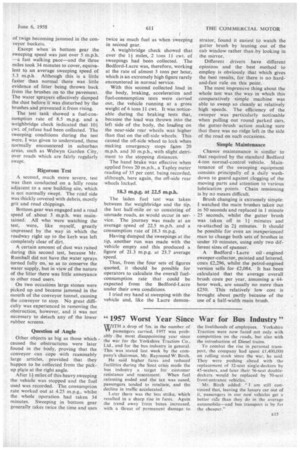"1957 Worst Year Since War for Bus Industry"
Page 59

If you've noticed an error in this article please click here to report it so we can fix it.
WITH a drop of 5m. in the number of vv passengers carried, 1957 was probably the most disappointing year since the war for file Yorkshire Traction Co., Ltd., and for the bus industry in general. This was stated last week by the company's chairman, Mr. Raymond W. Birch.. He said higher fares and reduced facilities during the Suez crisis made the bus industry a target for customer resistance and resentment. When fuel rationing ended and the tax was eased, passengers tended to retaliate, and the decline in traffic accelerated. Later there was the bus strike, which resulted in a sharp rise in fares. Again the trend away from buses increased, with a threat of permanent damage to
the livelihoods of employees. Yorkshire Traction were now faced not only with competition on the roads, but also with the introduction of Diesel trains.
To combat the rise in personal transport, the company had spent £1,400,000 on rolling stock since the war, he said. They were pushing ahead with the replacement of 32-seat single-deckers by 45-seaters, and later their 56-seat doubledeckers would be replaced by 70-seat front-entrance vehicles. Mr. Birch added: '1 am still convinced that, leaving the luxury car out of it, passengers in our new vehicles get a better ride than they do in the average automobile—and bus transport is by far the cheaper."








































































































































